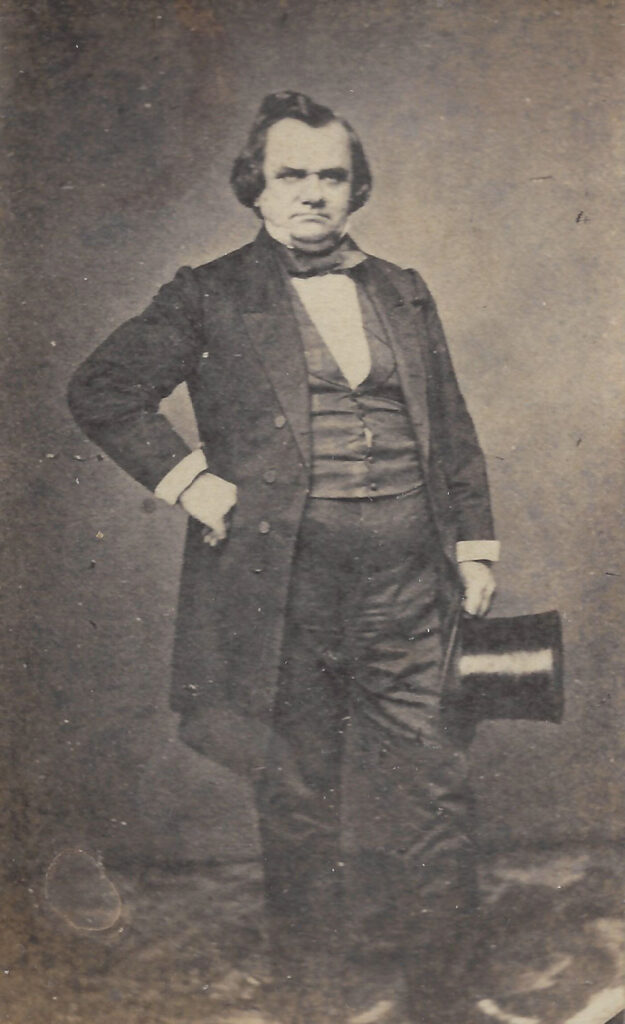Section #19 - Regional violence ends in Kansas as a “Free State” Constitution banning all black residents passes
Chapter 233: Douglas Is Re-elected While Lincoln Becomes Famous
October 16 to November 1, 1858
The Campaign Runs Right Up To The Final Day
Both candidates continue to stump right up to election day.
President Buchanan now views Douglas as his sworn enemy and he does everything he can to see that the Little Giant is defeated. He even organizes a slate of anti-Douglas Democrats, known as “Danites.”
Lincoln is most concerned about how members of his old Whig Party react to his switch to the Republicans.
Of special interest here is 71 year old Senator John J. Crittenden of Kentucky, like Lincoln a dedicated backer of Henry Clay. An endorsement from Crittenden would improve the odds of victory across the “old line Whig Belt” districts in central Illinois. But Crittenden is no fan of the Republican call to ban slavery in the territories, and he also views a Douglas victory as a slap in the face to Buchanan.
Instead of support for Lincoln, a Crittenden letter gets published which heaps praise on Douglas:
The people of Illinois little know how much they owe Douglas (who) had the courage and patriotism to take an elevated, just and independent position on the Lecompton question…calling not only for approbation but applause.
On October 29, 1858, Douglas makes his final stop in Rock Island, Illinois, where he is greeted by campaign banners that sum up his major themes:
- Popular Sovereignty Now And Forever
- Down With Negro Equality
- The Country Was Made For White Men
- Old Abe Has Got On The Wrong Spot
One day later, Lincoln ends his long march with a much quieter event at home in Springfield, where he tells friends and supporters that the entire effort, marked by many “odious epithets” hurled his way, will have been worth it if he could restore the Missouri Compromise and stop the further spread of slavery.
November 2, 1858
The Illinois Legislature Chooses Douglas Over Lincoln

Up until the Seventeenth Amendment in 1913, all U.S. Senators are chosen by their elected state legislators, rather than by the popular vote. Thus for Lincoln to displace Douglas in 1858, the Republicans must win a majority of the 100 seats up for grabs on November 2 in the Illinois state assembly.
Lincoln tracks the district by district returns throughout the day, and realizes by nightfall that the Democrats have held on to the legislature and, in turn, that he will lose to Douglas.
The final tally favors the Democrats by a margin of 54 to 46.
Illinois Legislature Election Of November 2, 1858
| Party | Senate | House | Total |
| Democrats | 14 | 40 | 54 |
| Republicans | 11 | 35 | 46 |
Lincoln is deeply disappointed by the loss, albeit not surprised by it.
The “Crittenden letter” backing Douglas has cost support across the “Whig Belt” counties, which the Democrats carry fourteen to five.
On top of that, Illinois voters also seem concerned that the Republican call to ban slavery in the west may be too radical a position and one that will cause the South to leave the Union.